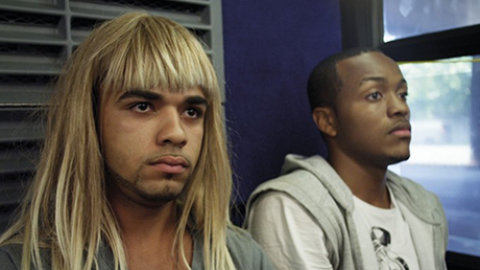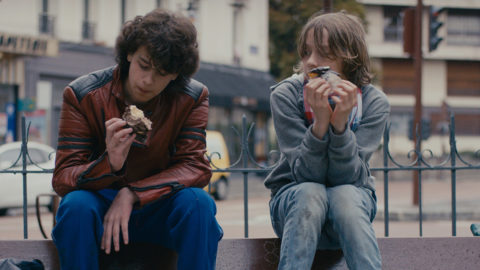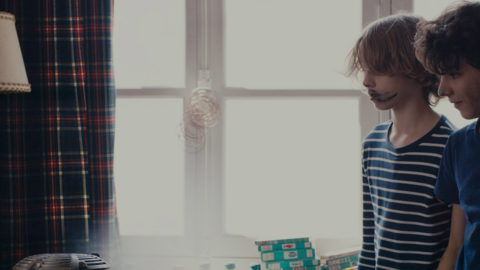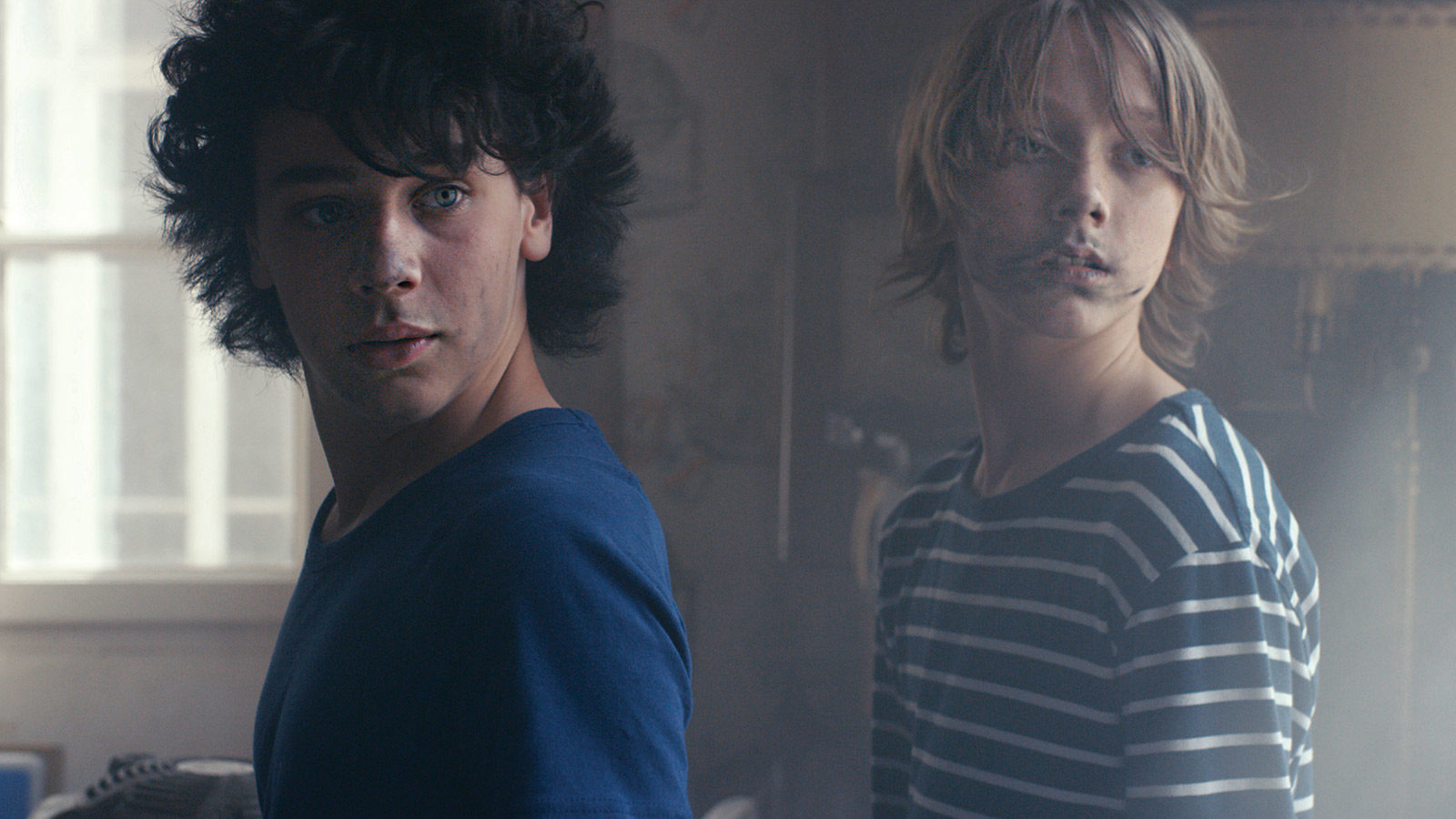
Review: Microbe & Gasoline
A few years back, a company soliciting young filmmakers to direct commercials tried to tempt potential applicants with the line “Be the next Michel Gondry!” Given Gondry’s variable success at the box office, the ad’s appeal seems to refer to a general air of originality, the sweetly surreal, the handmade. Often imitated but never truly replicated, the Gondrian sensibility is rooted in fantastical imagery that expresses some type of fragility: the crumbling mindscapes of Eternal Sunshine of the Spotless Mind (04), the woman perpetually on the verge of awakening and refracting herself in the video for the Chemical Brothers’ “Let Forever Be,” or the earnest crappiness of the “sweded” movies in Be Kind Rewind (08) that bring together a neighborhood threatened by gentrification.
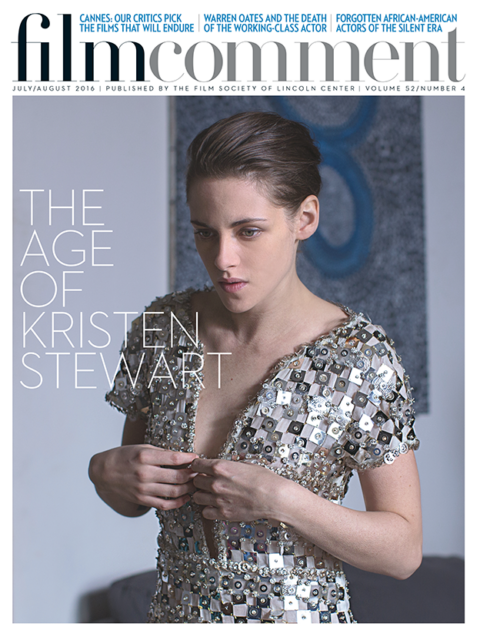
Gondry’s last widely released feature, 2011’s The Green Hornet, committed the cardinal sin of not launching a superhero franchise and seemingly banished the director from Hollywood. But no matter—when not getting bogged down by the demands of producers (as with 2013’s Mood Indigo), he’s been doing his finest work and expanding the scope of what “Gondrian” means. In Microbe & Gasoline, the filmmaker returns to the fertile ground of youth previously explored in the painfully accurate portrait of teenagers The We and the I (12). In this non-standard road movie, Daniel (Ange Dargent) lives in Versailles with his two brothers, very depressive mother, and exasperated father; at school, he’s called “Microbe” because of his small stature. One of those kids who is always drawing, Daniel is introduced waking up an hour before his alarm goes off so he can eat breakfast by himself and then climb back into bed; he’s elected to be a loner as much as it’s been forced on him.
Daniel’s bond with Theo (Théophile Baquet), the new kid at school and a kind-hearted smart-ass, is almost instantaneous. Theo’s an effortlessly cool kid who’d probably be more popular if his family wasn’t so poor. He arrives at school in his third-rate red “Thriller” jacket smelling like a garage, and is derisively dubbed “Gasoline” by some bullies. Dramatizing the two boys’ respective insecurities and strengths, Gondry has crafted a pair of loners who complement each other but aren’t so outrageously different that their companionship feels forced.
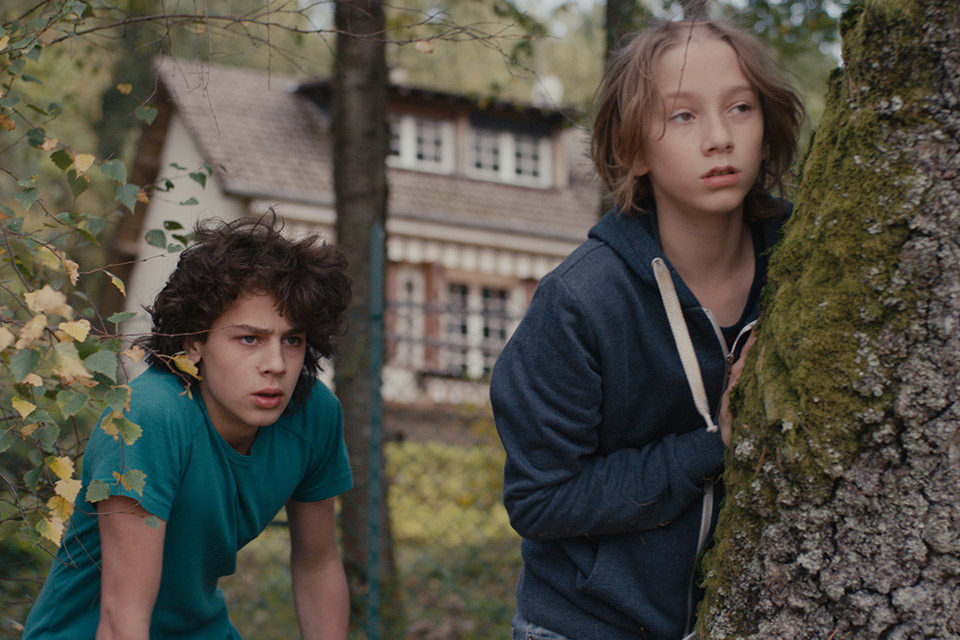
Microbe & Gasoline
Like his antique shop owner dad, Theo is a connoisseur of junk, and after acquiring an old two-stroke engine, he resolves to build a car so that he and Daniel can live “the dream of absolute independence.” When they discover that their creation can’t legally be driven on any road, they disguise it as a house: with a pull of a flap, the wheels are covered, making it undetectable to police. This design (and the fact that the trick actually works) is the only explicit Gondry quirk we’re offered, and the film never crosses into the realms of the overly precious. With the two travelers on the cusp of raging teenage horniness, their destination is a camp in the rural Aubrac staffed by buxom cooks. Daniel secretly reroutes their trajectory in the hopes of encountering his school crush at her family’s cabin. Their journey leads them to an overzealous dentist, a motorcycle gang that plays American football, and a deepened distaste for our ultra-connected, digital world.
Far more important to the film than these adventures is the chemistry between Daniel and Theo. Gondry wisely opts to portray each boy’s sadness through his actions (Daniel’s sleeplessness, Theo’s desire to run away) rather than through episodes of anger or on-the-nose dialogue. These boys are all too real, and their final moment together is among the most quietly devastating in all of Gondry’s oeuvre.



